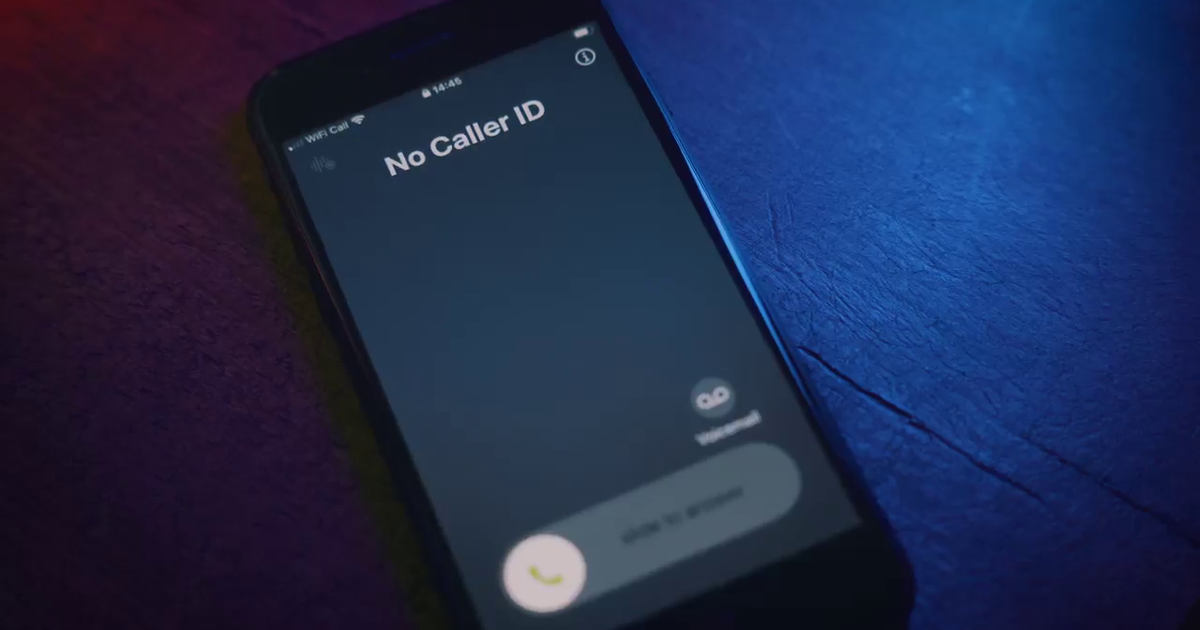Copyright CBS News

How many spam calls have you gotten so far today? Unwanted robocalls are Americans' number one consumer complaint, and that has CBS News California investigative correspondent Julie Watts asking: What's being done to stop them? Whether they're pushing payday loans, sketchy charities or they're just a straight-up scam, robocalls aren't just annoying. If that automated voice is asking you for money, odds are that it's illegal. Once a world traveler working on development projects for the U.S. Agency for International Development, or USAID, Julie Heifetz feels like her new full-time project is fielding spam calls. "I get so many. I say, 'Damn it, it's another robocall!' " Heifetz said. In 2010, we first asked the Federal Communications Commission (FCC) why putting your number on a do-not-call list didn't seem to work. "If you didn't have a do-not-call list, it would be even worse," the FCC said then. Well, today, it is worse. During the first nine months of 2025, there were 40.8 billion robocalls, according to data from YouMail, a visual voicemail and spam blocking service. That's up 5% from the same period last year. Most violate the Telephone Consumer Protection Act, which makes it illegal to make unsolicited automated or pre-recorded calls. "It's still happening because it's really hard to track these people down," said Mike Mizenko with Nomorobo, one of a growing number of companies that deploy technology to help consumers block unwanted calls. "They're using all sorts of new technology all the time. They're very creative." We first featured Nomorobo over a decade ago when they won the Federal Trade Commission's robocall blocking challenge. Their technology has come a long way, but so have the scammers. So Nomorobo is taking a new approach, with Mizenko saying the company has "filed four lawsuits in a couple of different federal courts." Nomorobo tracked and recorded thousands of robocalls using their own network of more than a quarter million unused phone lines, essentially a huge "honeypot" built to catch robocallers in real time. "We have this data. We know it's real. We can prove everything we allege," Mizenko said. The company sued some of the bad actors, who so far have mostly been debt collectors. "We can kind of make a statement and say, 'Hey. We're watching. We know what you're doing. We can prove what you are doing. You need to clean up your practices,' " Mizenko said. California Attorney General Rob Bonta has taken legal action, too, joining a multi-state lawsuit against Avid Telecom for making billions of illegal robocalls. Recently, Bonta joined other attorneys general in sending warning letters to companies suspected of generating major robocall traffic. We caught up with Bonta in San Francisco to ask him about how effective these letters can be. "It's remarkably impactful, especially when it's multiple attorneys general," he said. "We'll monitor their response, and if they don't comply, a lawsuit will be the next step." A recent analysis of FCC data finds that more than 50% of U.S. phone companies are not complying with the federal robocall law, which requires them to install mandated software and adopt anti-robocall policies. "I think [the FCC] can do more and I think attorneys general can do more, and I'll say that because we have many Americans still suffering from robocalls," Bonta said. "Not pointing the blame but just trying to share the responsibility." We emailed the FCC for comment and received an auto-reply saying that press inquiries won't be responded to due to the government shutdown. "Unless they're stopped, it's just going to grow and grow because if they can get away with it, why not?" Heifetz said. Avid Telecom asked a court to dismiss the multi-state lawsuit filed against it and was denied. We tried to contact the company for comment, but the website was down and the phone number was disconnected.



